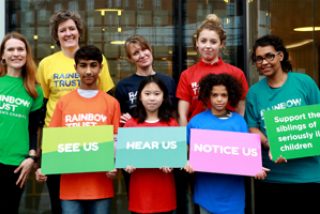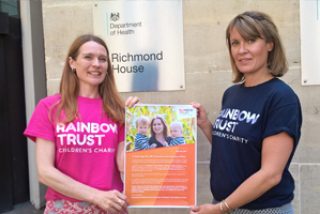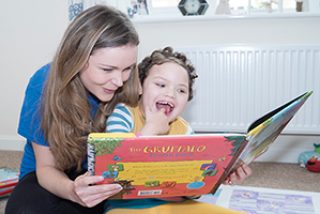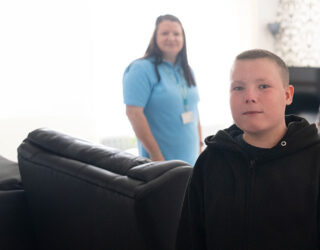Families caring for a seriously ill child often feel isolated and emotionally unsupported. Rainbow Trust Children’s Charity’s two new briefings for decision makers – “Isolation and loneliness amongst families who have a child with a life-threatening or terminal illness: The impact on parents: finances, employment and support networks” and “The impact on children and young people: education and friendships” – share what families have told us, and what government must do so that no family is left to cope alone.
Download our Loneliness and Isolation Briefings
Key findings:
- Parents of seriously ill children often feel isolated in many areas of life — at work, in their relationships, and within their wider support networks
- Some parents give up work entirely to care for their child, while others take unpaid leave or have to use holiday or sick days to cover hospital stays
- Even when parents remain in work, many feel isolated from colleagues and unsupported by their employer during a deeply difficult time
- Siblings can feel overlooked as family life shifts to meet the urgent needs of a seriously ill child, often without enough tailored support from schools or health services
- Seriously ill children and siblings alike miss out on school, friendships and play. Their routines are disrupted, and peers may struggle to understand what they’re going through
- Families told us that Rainbow Trust’s support helped parents stay in work or education, and reduced loneliness through emotional and practical support, but too few families have access to this.
What needs to change:
We are calling on government to implement direct measures that will support families, and work with employers, the NHS, councils and schools, to:
- Extend Carer’s Leave and make it paid, so families are not financially penalised when caring for a seriously ill child
- Encourage employers to go beyond the statutory minimum by offering enhanced flexible working and paid carers’ leave
- Promote better pastoral support in the workplace, including strong line management, peer networks, and signposting to trusted charities like Rainbow Trust
- Provide financial support to families who lose income due to a child’s sudden or long-term illness, including those not eligible for benefits
- Ensure local authorities and the NHS are adequately funded so families can access short breaks, children’s social palliative and end of life care, mental health and emotional support, including in bereavement
- Extend loneliness campaigns to include families of seriously ill or terminally ill children as a priority group, and recognise them as a group at higher risk of loneliness
- Help schools better understand and respond to children’s isolation linked to serious illness in the family – schools play a key role in facilitating contact and friendships, mental health and emotional health support, and access to play and education.
- Ensure schools, local authorities and the NHS work together to support the educational needs and aspirations of seriously ill children and their siblings – including through monitoring and expanding existing education guidance
- Commission voluntary sector services, such as Rainbow Trust, to provide tailored support to families.
Find out more about our policy and research
-

-

-

-

-

Briefings and consultations
Read our policy and campaigns briefing and consultation responses.
Read more -

